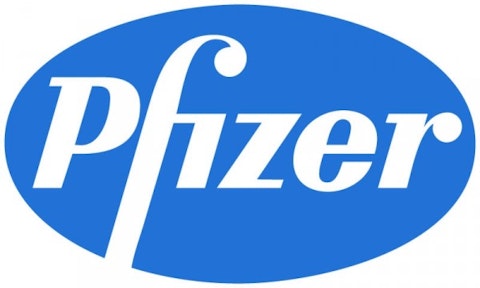Analysts wonder if other drug companies will follow in the footsteps of Abbott Laboratories (NYSE:ABT) and spinoff different parts of their business. Abbott spun off its research-based pharmaceutical business, AbbVie Inc (NYSE:ABBV) at the beginning of 2013. This divestiture benefited Abbott’s investors, who saw a positive total return.
Are there drug companies that are trading at attractive valuations given their potential for reorganization?

Pfizer Inc. (NYSE:PFE), the world’s largest drug maker, is considering separating of its patent-protected medicines and generic products into two different companies. As this would mean a significant modification in its operations, the company is looking at the changes required in its structure, as well as the reactions from its shareholders. Pfizer’s CEO Ian Read stated, “We will move toward separate management, and at that point we’ll evaluate whether shareholders would prefer to have the opportunity to invest in two separate companies or not. There’s not really a point in speculating on this.”
Read’s current business strategy relies on share buybacks, divesting non-drug units and launching new medicines, all of which have boosted Pfizer shares 29% during the last year. As well, the forecast for the company’s patent-protected business is of nearly $36 billion in sales for 2013, while its generic medicines division should report an income of around $17 billion during this year.
Pfizer’s Specialty Care and Oncology President Geno Germano said during this past January almost exactly the same words as Read recently did. Germano’s statement initially triggered speculation from analysts, who suggested it might mean more than a clear separation of the company’s businesses, and more of a bid toward dividing Pfizer into two distinct companies. It’s worth considering that Pfizer’s operations in developed markets, such as Europe and the USA, are already structured into separate divisions for generics and brand-name drugs. Sanford C. Bernstein analyst Tim Anderson said, “It is still possible that Pfizer will go the full distance and eventually split up the drugs side of the business. Pfizer has begun to raise this possibility consistently in its meetings with investors, and the question is whether it could really happen or not”.
Eli Lilly & Co. (NYSE:LLY) to Stick Together
Fourth-quarter profits for Eli Lilly & Co. (NYSE:LLY) were higher than previously forecasted by analysts, as sales of its Cymbalta depression treatment increased by 20% and its animal health division continued its steady increase in sales. Although higher prices of Cymbalta in the USA were also involved in the profit, the drug remains the company’s top-selling product in the market.
Even as net income fell 4%, to nearly $830 million, its earnings beat the average forecasted by Bloomberg’s analysts by 6 cents a share. Its 2013 forecast was also raised by 7 cents, to almost $4 dollars a share. In perspective, its shares have risen 39% during the past 12 months.
Recently, Lilly has been struggling to increase profits as generic copies start to take sales from its products. Zyprexa, a schizophrenia drug that used to generate around $5 billion in annual revenue, lost its patent protection in October 2011, which made its sales tumble nearly 50% just in that quarter. As Cymbalta is scheduled to lose its market exclusivity in 2014, this year is of particular relevance to the company’s financial health, as Edward Jones’ analyst Judson Clark said, “2013 is the eye of the storm between Zyprexa and Cymbalta, so we’ll see. Their pipeline needs to step up.” According to statements made by Lilly, it currently has 13 drugs fully developed and in the final testing stages, and they should have regulatory approval in this year for 3 new diabetes treatments and 2 new cancer drugs. Further stability came from its animal health unit, which showed an 18% increase in sales to almost $555 million.




